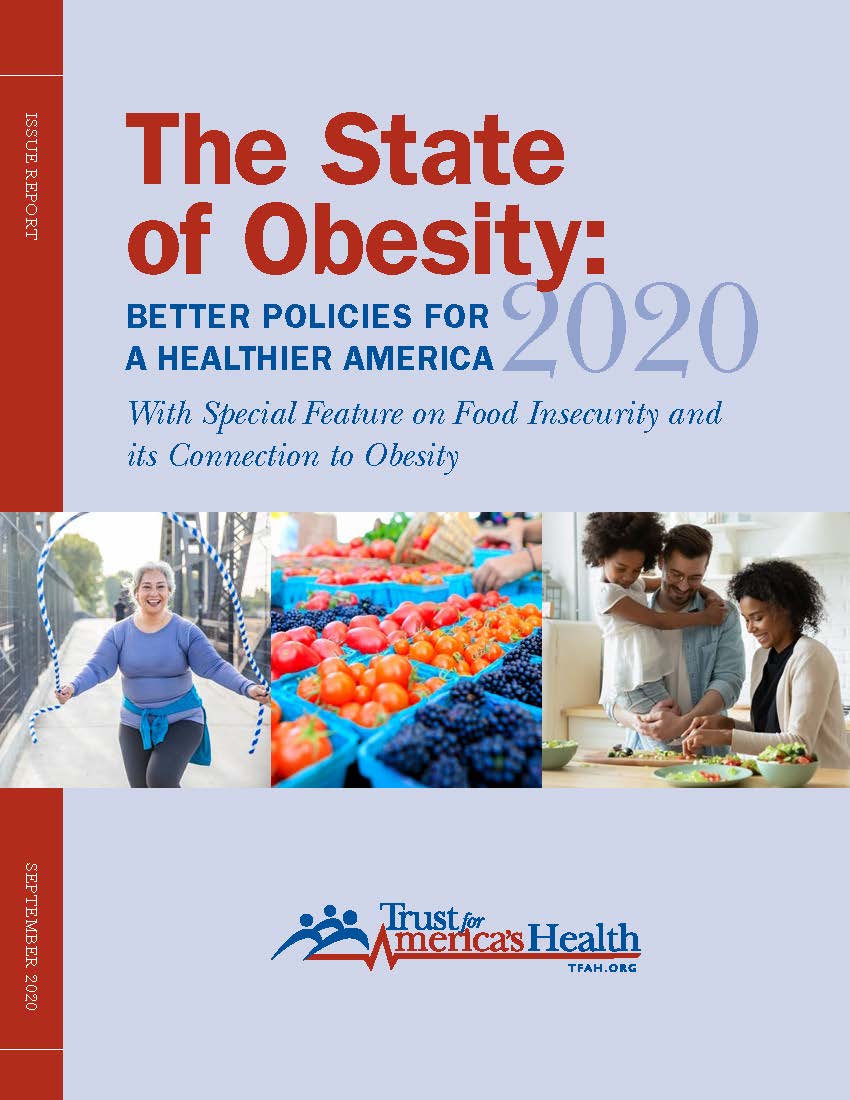 Fall has arrived, which means we have a new State of Obesity Report from the Trust for America’s Health. The report offers valuable data that describes the extent of the challenge we face with obesity. And perhaps more than anything, OAC agrees with this assessment upfront in the report:
Fall has arrived, which means we have a new State of Obesity Report from the Trust for America’s Health. The report offers valuable data that describes the extent of the challenge we face with obesity. And perhaps more than anything, OAC agrees with this assessment upfront in the report:
“Despite this continuing rise in obesity and its consequences, the United States has failed to create a coordinated and comprehensive response to the obesity epidemic.”
This report offers some good recommendations:
- Reduce health disparities
- Increase food security
- Improve the built environment for physical activity
- Reform the marketing and price for food
And, while the report authors begin to address treatment issues for children, we hope that future editions of this report will offer help for the more than 4 in 10 Americans who are living with obesity right now.
Disparities and Racism
Health disparities and racism are also mentioned a lot in this year’s report, which is encouraging because minority populations often experience obesity differently from others.
For example:
- Some minority populations have a higher predisposition to certain obesity-related health conditions.
- Race can influence someone’s access to healthcare if it is affecting their income or employment.
- Income and socioeconomic status can affect access to healthy food, safe places to walk outside, stress/mental health, and more.
While weight bias and discrimination affect people with obesity across the board, certain factors in society often complicate things for communities of color, making minority populations even more marginalized. The OAC is committed to being the voice and fighting for all people affected by obesity, including communities of color and minority populations who carry unique risks.
Universal Access to Obesity Care
Moving forward, addressing racism and health disparities is critically important, but we shouldn’t be content with just ensuring that minority populations receive the same inadequate care as the rest. No – we must eliminate ALL health disparities, including the glaring gaps in care for people with obesity.
Paying for the complications of untreated obesity while denying access to real obesity care ultimately costs more in healthcare dollars, and it’s unfair to patients. It’s worse when you realize we know how to prevent those complications with science-based obesity treatments, even in minority and underserved populations. All it takes is good obesity care, informed by objective evidence.
OAC National Board Member Sarah Bramblette, MSHL, who is also the Chair of OAC’s Access to Care Committee, describes good obesity care as including:
- More time in appointments for providers to get to know patients and their living situations, especially any recent changes
- Expanded healthcare coverage for appointments, medications, tests, or treatments that providers give to patients
- Trust without judgment between patients and providers
- Providers having resources to provide information, including referrals to community programs and mental health support
Ms. Bramblette also says:
“Perhaps, in short, we need to start caring for the whole person. Healthcare isn’t just physical, but also mental and emotional. All three impact the other. Physical is just the most visible.”
Building a Future with Real Solutions
The State of Obesity Report provides a lot of useful information, but there is more to be said about building a future that takes on the challenge of delivering better care for 42 percent of Americans living with the chronic disease of obesity.
OAC’s President and CEO, Joe Nadglowski, explains:
“The value of this year’s TFAH Report is that we at least see the discussions that move obesity beyond just personal blame and responsibility. Looking ahead, we need to be addressing obesity with a multi-sector approach and policy change that includes dealing with food insecurity, feeding programs, marketing, education, community policies, health coverage for treatment, and more. We’re laying the groundwork for policy action and building opportunities to improve the health and lives of Americans living with or at risk for obesity.”
Resources that Can Help:
- Help OAC support passing the Treat and Reduce Obesity Act.
- Find a healthcare provider to help with obesity treatment.
- Get health/wellness education through OAC’s Your Weight Matters Campaign.
- Explore OAC’s Understanding Your Weight-loss Options Brochure.
